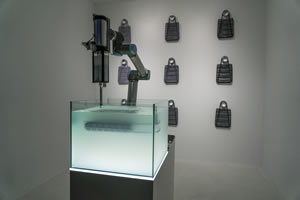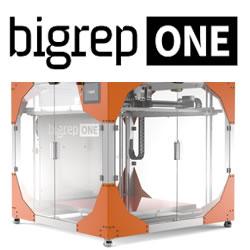This Device Is Trying To Revolutionize 3D Printing
 Dave Pinter for PSFK: A nagging drawback that continues with 3D printing is speed. It isn’t critical for all applications, but compared with established manufacturing processes like stamping and injection molding, it is still very slow. A group of really clever people however have created a new method of 3D printing that is not only faster, but capable of printing products to a sellable state with little cleanup required.
Dave Pinter for PSFK: A nagging drawback that continues with 3D printing is speed. It isn’t critical for all applications, but compared with established manufacturing processes like stamping and injection molding, it is still very slow. A group of really clever people however have created a new method of 3D printing that is not only faster, but capable of printing products to a sellable state with little cleanup required.
New York based Patrick Parrish Gallery presented a collaboration between designer Christophe Guberan and MIT’s Self-Assembly Lab called ‘Rapid Liquid Printing’. The exhibit at Design Miami/ 2017 contained a robotic arm that printed handbags, each taking about 45 minutes to complete.
The process works with the robot arm dispensing a stream of silicone into a tank of clear gel, the consistence of which isn’t too far off from hair gel. The technique allows for object with internal volumes to be printed without any extra internal support structure. Full Article:
Comments (0)
This post does not have any comments. Be the first to leave a comment below.
Featured Product

